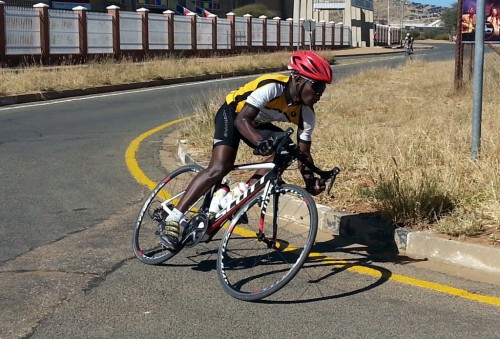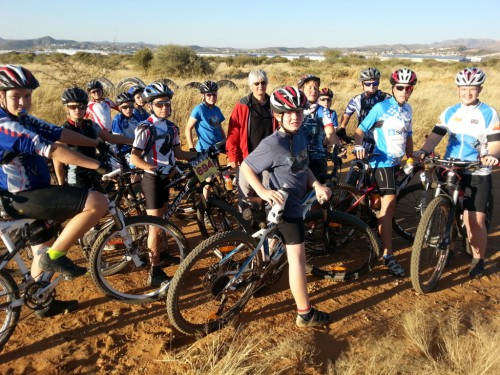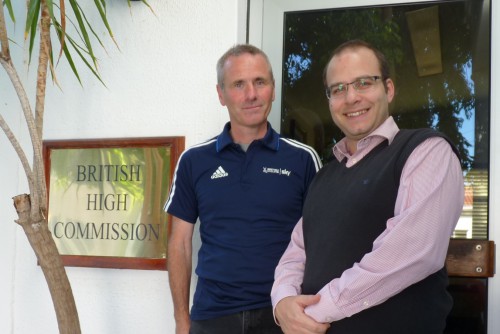1st July 2014 Windhoek, Namibia
Cycling the road to Glasgow and beyond
The following is a guest blog by Richard Shepherd, Cycling Coach from British Cycling.
From the 16th to the 26th of June I visited Namibia in my role as an expert in Cycle Coaching and Development. My experience comes from working as a Coach and Coach Educator for British Cycling and the world governing body for cycling, the UCI. This was the first of a series of visits to Namibia as part of a British Cycling/UK Sport initiative to support the development of cycling in Namibia.

I have been a British Cycling Coach for many years and have experience of Sports development and Coach Education as well. Having coached in a number of African countries I understand the problems that can be encountered but also the benefits that can be obtained.
During my stay in Windhoek, the lovely capital of Namibia, we managed to jointly lay out a 4-year-plan, drawing together all the interested groups in Namibian cycling, mainly the Namibian Cycling Federation (NCF), cycling clubs throughout Namibia, together with other projects and groups which have cycling as a priority or focus.
Currently there are no dedicated facilities for cycling in Namibia, without at least one, the prospects for progression will be very much reduced. This is the single most important part of the 4-year-plan.

However, the NCF recognise this and are in the process of identifying suitable locations for what would become an African centre of excellence for Cycle Sport with multi – discipline facilities and accommodation. Sponsorship will be needed to ensure this facility is established to the standards required but when completed it will a shining example of what can be achieved and ensure sustainability of the whole project.
During my stay, we identified certain priority sectors within cycling, which need to be looked at. Coaching in Namibia is an area that is in need of development support so we will hold a coaching course in January 2015 to achieve just that. Other elements that will need addressing are the training of officials and the creation of specialist Cycling facilities. The Mountain Bike trials need to be made more challenging and a safe tarmac training/race facility in Windhoek needs to be in place as a priority.

One of the groups I was training with, is the Katutura based Physically Active Youth (PAY) project. The youngsters receive education support and are then encouraged into sports. Cycling is a major focus for this group. Each day after the learning has been completed these young people transform into cyclists and prepare for training. The PAY Elite Team included me on a training ride and we headed for the Independence Stadium. Once there, I lead coaching sessions to develop technique, skill and race specific fitness. On other days we headed into the hilly parts of Windhoek to make the riders suffer with very intense sessions. I must admit, they (and I) really enjoyed those hours in the sun too.

The Commonwealth Games in Glasgow are fast approaching and I will be accompanying the Namibian Team as Coach. This is the first proper role as part of my involvement with Namibia Cycling. I will be visiting regularly over the coming years to support the project aims and ensure Namibia creates a strong, healthy and sustainable structure that is an example of excellence in Cycle Sport.
There have been success stories within Namibian Cycling in the past but these have been achieved by the efforts of a few individuals against the odds. In future, these successes will become more frequent and to an even higher level when the project aims are achieved.
 Richard Shepherd at the British High Commission with Hans-Christian Mahnke, Political and Press Officer of the High Commission.
Richard Shepherd at the British High Commission with Hans-Christian Mahnke, Political and Press Officer of the High Commission.